For decades, the media in Nigeria has suffered problems of ideological clarity in their editorial directions as well as a lack of synergy in efforts to hold government to account. Poor understanding of social issues, and complex industry problems force the media to lose sight of its constitutional role of holding leaders to account as enshrined in Section 22 of the 1999 Constitution.
In a bold move to reclaim its role as a watchdog of government, the Nigerian media recently gathered for a crucial roundtable discussion. Organised by FrontFoot Media, the event brought together 40 top editors from leading print and online publications to tackle the pressing issues of political communication, and government audit reporting. The Media Roundtable, which held on 15 August 2024, had the theme: “The Nexus between Media and Government Accountability.”
FrontFoot’s Sonala Olumhense, in a seminal speech, noted that the vision of the FrontFoot Media Initiative was to expose Nigerian journalists to the principles and practices of public service journalism focused on reporting the constitutional mandate to the governments to publish audited accounts. He urged journalists to learn far more about state account auditing and as well as about the office of the auditor general of states, which governors are grossly abusing. Part I of Chapter V and Sections 125, 126, and 127 of the 1999 Nigerian Constitution are explicit about use of public funds and account auditing.
Join our WhatsApp Channel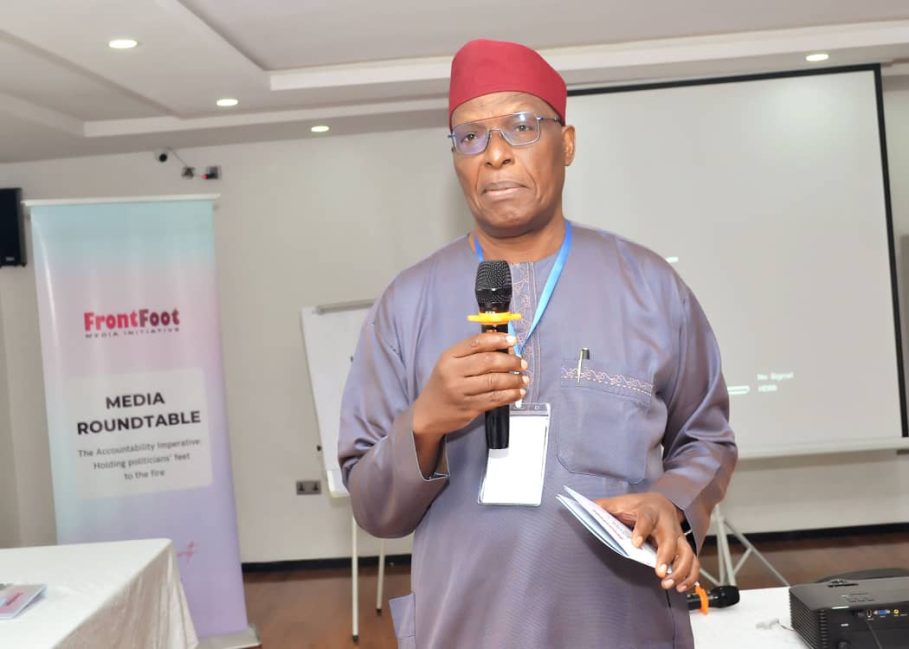
Earlier in their introductory remarks, FrontFoot’s co-directors, Sully Abu and Emeka Izeze, all made case for resonance of vibrant media industry that would hold governments accountable, with the former lamenting that things are getting from “bad to worse”, and the media challenge reaching the “tipping point of its tipping point.” Abu and Izeze, who both have had longstanding experience as veteran journalists, editors, managers and communications consultants, in their separate submissions argued that single major problem of Nigeria was “lack of accountability at every level.”
“Governors are the single most destabilising element in our polity; they are neither in their states (they are either in Abuja or abroad) for half of their tenures,” Abu said.
Izeze, a former Editor, Editor-in-Chief and Managing Director of The Guardian, noted that Nigeria would not have been able to oust the Military from power without a vibrant media between 1950s and early 1990s, even as he made reference to the positive impacts of the Nnamdi Azikiwe and Obafemi Awolowo-led newspapers across the country during the era. “We thought the problem was the Military, (but) here we are,” Izeze told a group of 40 senior editors gathered by FrontFoot Media at the Bon Hotel, Ikeja, Lagos.
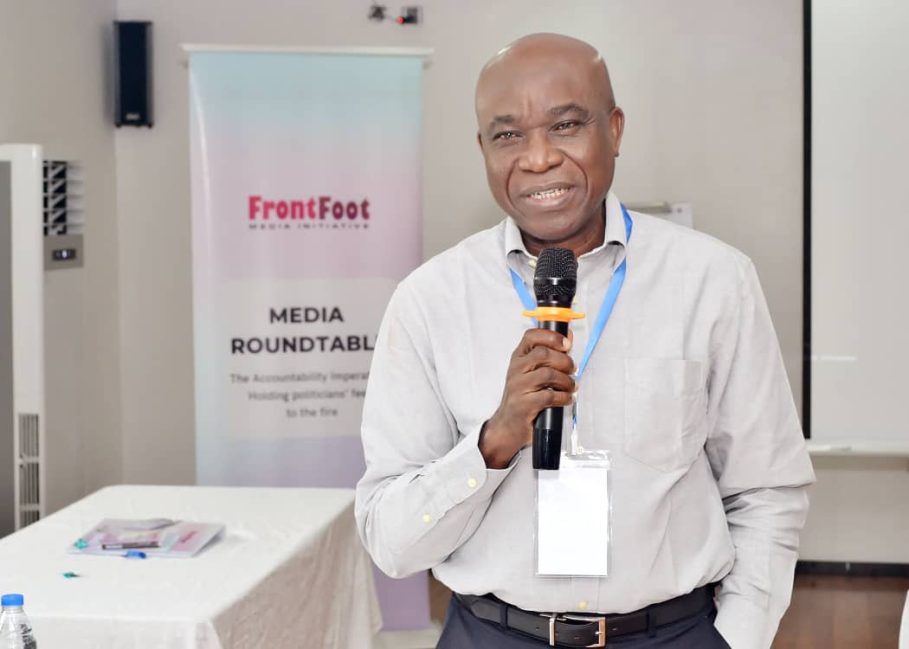
“The press always seems to know what is better, he said pointing out that “how the press can get back to its original position which is holding leaders accountable”, and making governors to stay “close to the people they govern” was paramount. Echoing Abu’s position, Izeze said, “some governors think they can run their states from elsewhere.”
Also speaking, a participant, Lanre Idowu, said the media should embrace the role of the ombudsman (watchdog) to enhance public confidence in the media. This view is hinged on the notion that the media must also scrutinize itself first to stand a clean chance of holding leaders to account.
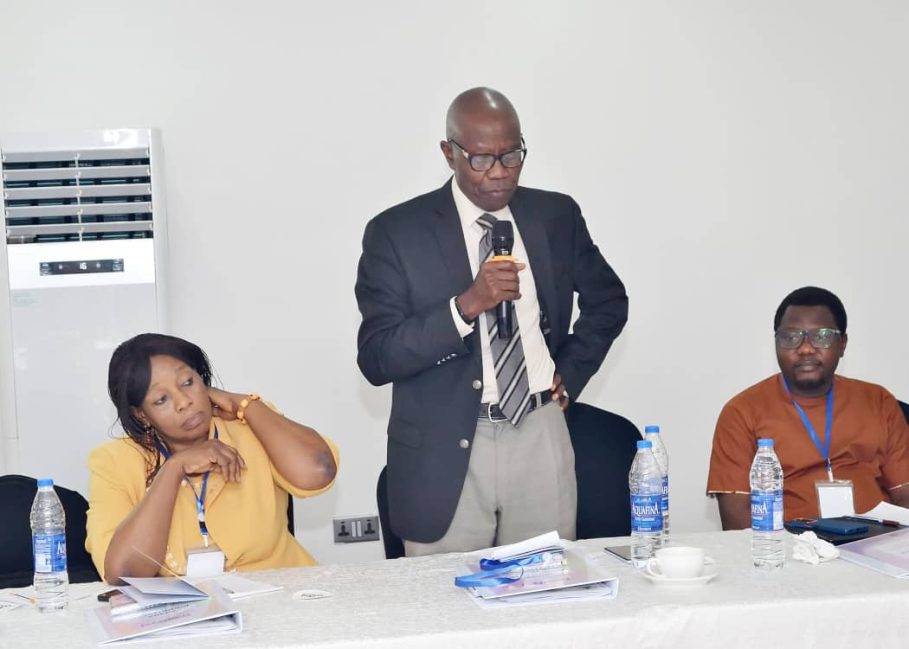
FrontFoot media has been holding several workshops in key cities across Nigeria to equip journalists with the skills for political reporting, especially in the area of audit reporting and media synergy necessary to confront industry and national issues from common standpoints. The cities include Benin, Awka, Abuja, Lagos, and Gombe. The meeting was a response to the growing concern that the media is struggling to hold government accountable due to a lack of understanding of complex social issues and the challenges posed by dwindling media fortunes.
A key takeaway from the roundtable was the importance of understanding the complexities of social issues such as auditing government accounts to effectively communicate them to the public. This growing reportorial challenge before the media is exacerbated by the new media era, where the openness and looseness of social media have resulted in a loss of media credibility, public confidence, and media illiteracy. With the rise of social media, the traditional media’s credibility and public trust have been eroded, making it harder to effectively communicate critical information to the public. The roundtable therefore re-echoed an apparent situation showing that the media must reclaim its role to modern society, which has been defaced by a plethora of (social) media distraction and disinformation, a poor national media structure and government abuses.
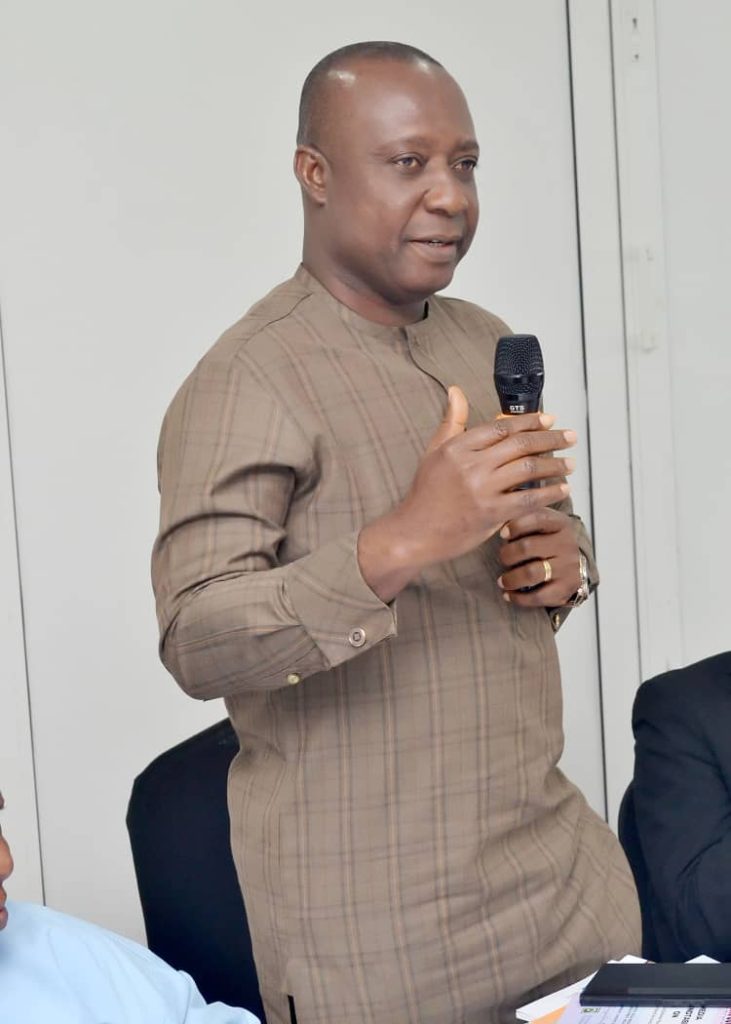
READ ALSO: Capacity Building In Media Practice, Technology Use, Critical For Professionalism – Editors
Olumhense remarked that for over 20 years, no one knows anything about the details of reports of state auditors on public accounts or the committees mandated by the Constitution to consider the reports. He asked: What happens after the Auditor-General submits his report?” He notes that a three-year engagement at FrontFoot suggests that the answer to the question appears to be: “nothing happens”. He therefore admonishes journalists: Nothing happens unless someone with the ability, the authority, and the zeal, to ask questions, does so. This is the only logical explanation of the thinking of the Constitution: that the mass media, which the Constitution authorizes in Section 22, does its duty to “uphold the responsibility and accountability of the Government to the people.”
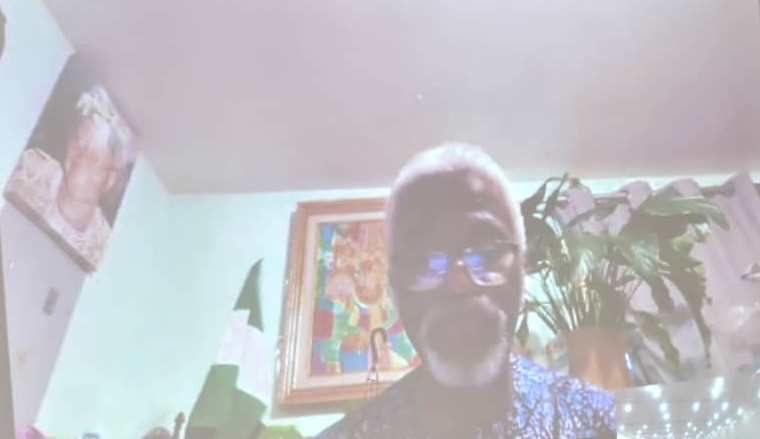
The roundtable highlighted the need for collaboration among media players and stakeholders to enhance the media ecosystem and promote higher standards of journalism ethics. This includes addressing hindrances to reporting government audits, such as the lack of support from government and the need for collaborations among the media on sensitive issues in reporting government affairs.
As the media continues to face numerous challenges, including revenue loss and legal attacks, the roundtable stressed the need for a united front to promote media sustainability and defend press freedom. With the fate of Nigerian society closely tied to the media’s ability to hold government accountable, the outcome of this initiative will be crucial in shaping the country’s future.
Furthermore, the roundtable emphasized the importance of intellectual property, online media (mis)treatment by Google, and the need for a libel defense fund to assist media houses facing legal attacks.
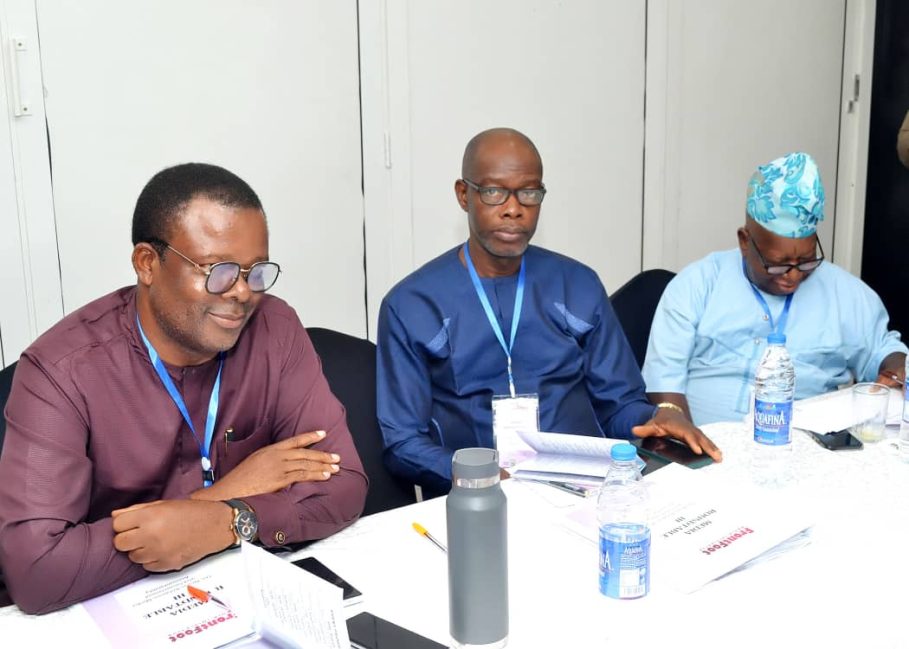
Dr Marcel Mbamalu, the Publisher and Editor-in-Chief of Prime Business Africa, specifically harped on the need to fine-tune newsroom recruitment and training processes to support professionalism as well as bridge generational gaps in age, technological skills and worldview. Dr Mbamalu pointed out that the generation of senior journalists with the right journalism skills and experience unfortunately appear to lack the requisite and up-to-date technological skills, while the younger generation who may be bereft of passion and knowledge of ethics have the right technology for the job.
He therefore emphasised the need to bridge the technological gap so as to be able to impact the younger crop of journalists in newsrooms and ensure that they do not use the right technology to kill professionalism. “The issue that I have observed, especially in the last four years, is that many of us who are experienced enough to mentor the younger generation of journalists are technologically deficient and so can do just a little to engender real change.
“We have the journalism, they (new crop of young online journalists) have the tech. We need to be able to ensure that we have both the tech and the right journalism skills to change the society for good”, Dr Mbamalu said in his brief contribution.
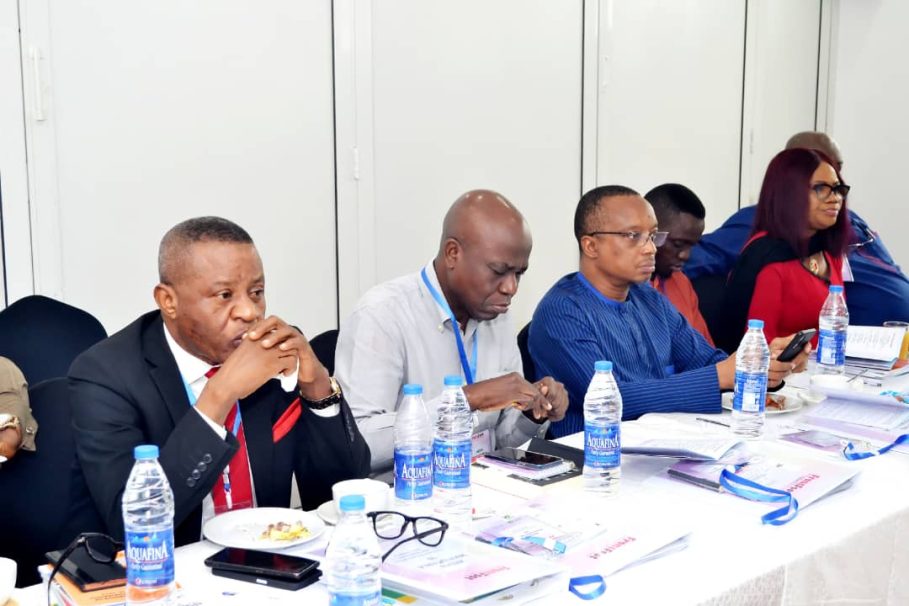
The meeting, which FrontFoot held in association with the Wole Soyinka Centre For Investigative Journalism and the MacAthur Foundation, therefore, stressed the need to bridge the gap between technology and journalism, ensuring that technology enhances core media roles rather than defacing them.
As the Nigerian media landscape continues to evolve, the need for a unified and informed approach to reporting has become increasingly evident. Ultimately, the roundtable underscored the critical role of the media in holding government to account, ensuring good governance, and promoting social stability.
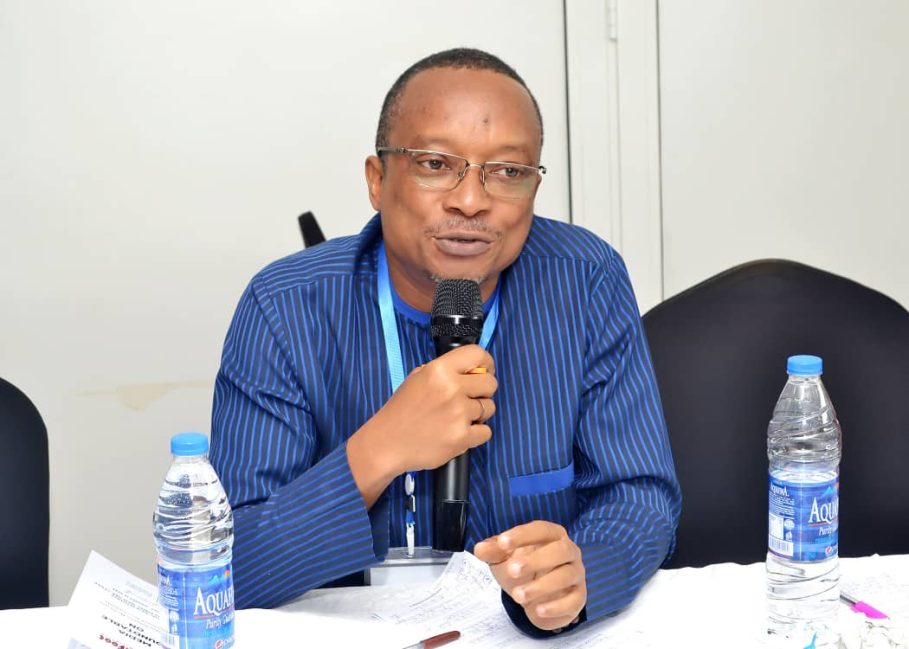
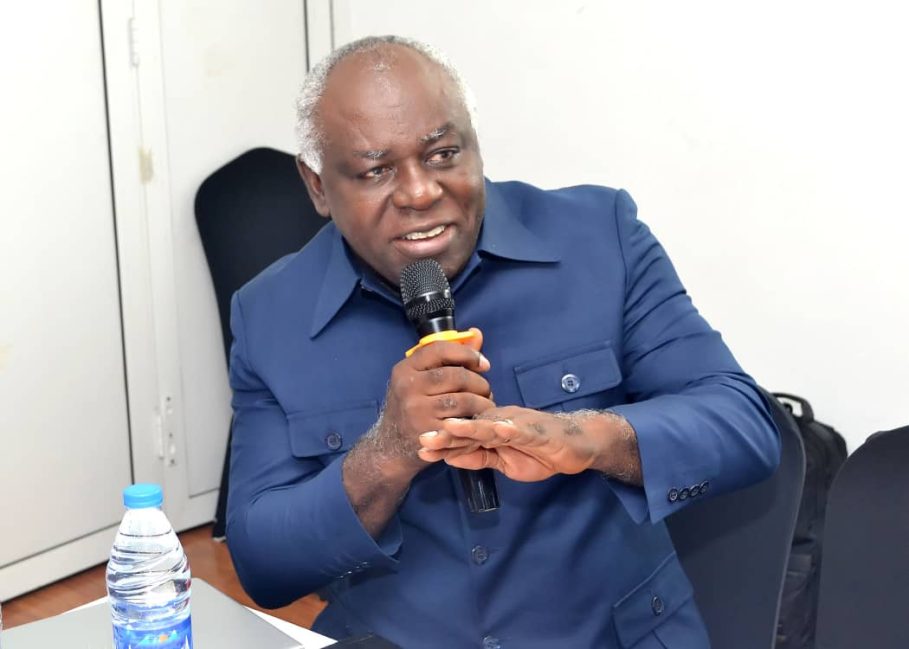
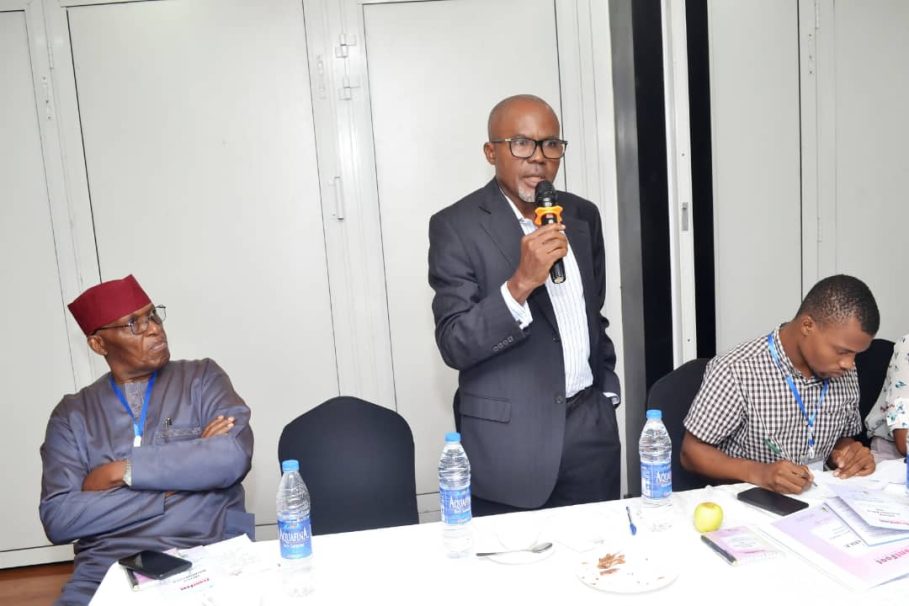
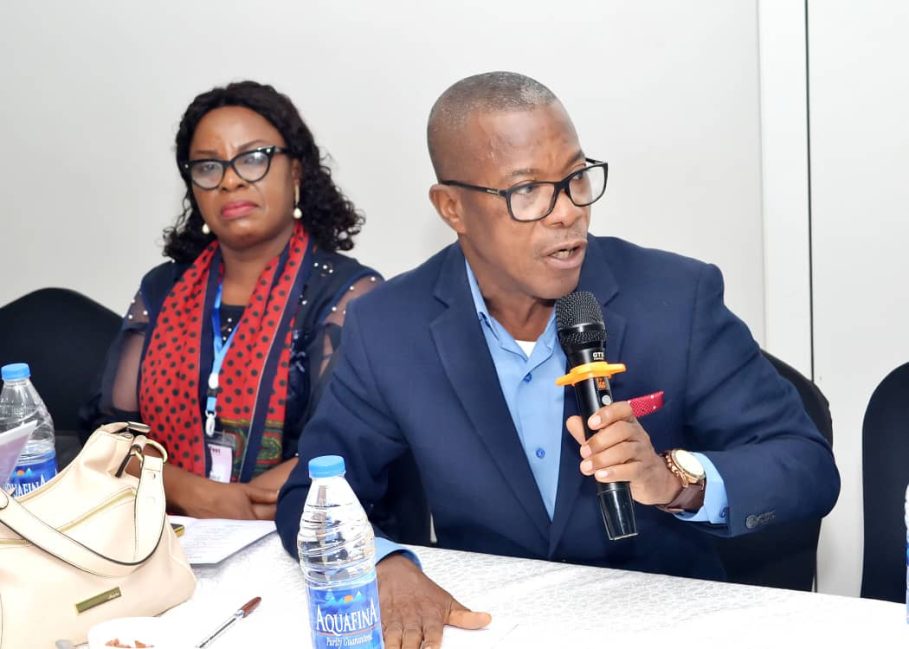
Dr. Marcel Mbamalu is a communication scholar, journalist and entrepreneur. He holds a Ph.D in Mass Communication from the University of Nigeria, Nsukka and is the Chief Executive Officer Newstide Publications, the publishers of Prime Business Africa.
A seasoned journalist, he horned his journalism skills at The Guardian Newspaper, rising to the position of News Editor at the flagship of the Nigerian press. He has garnered multidisciplinary experience in marketing communication, public relations and media research, helping clients to deliver bespoke campaigns within Nigeria and across Africa.
He has built an expansive network in the media and has served as a media trainer for World Health Organisation (WHO) at various times in Northeast Nigeria. He has attended numerous media trainings, including the Bloomberg Financial Journalism Training and Reuters/AfDB training on Effective Coverage of Infrastructural Development of Africa.
A versatile media expert, he won the Jefferson Fellowship in 2023 as the sole Africa representative on the program. Dr Mbamalu was part of a global media team that covered the 2020 United State’s Presidential election. As Africa's sole representative in the 2023 Jefferson Fellowships, Dr Mbamalu was selected to tour the United States and Asia (Japan and Hong Kong) as part of a 12-man global team of journalists on a travel grant to report on inclusion, income gaps and migration issues between the US and Asia.


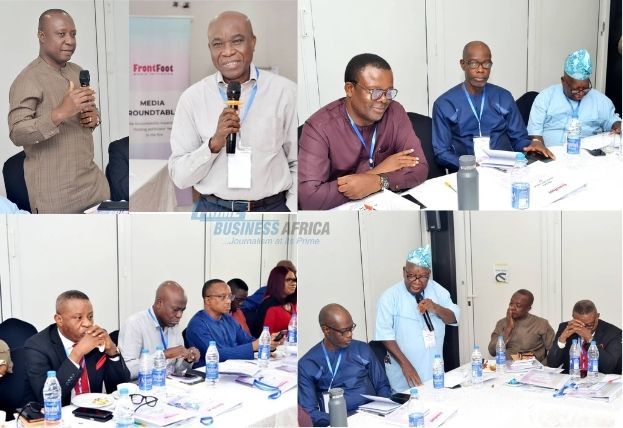

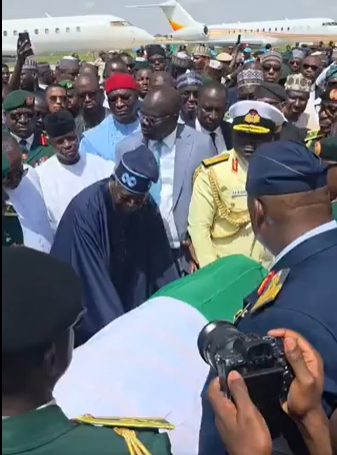
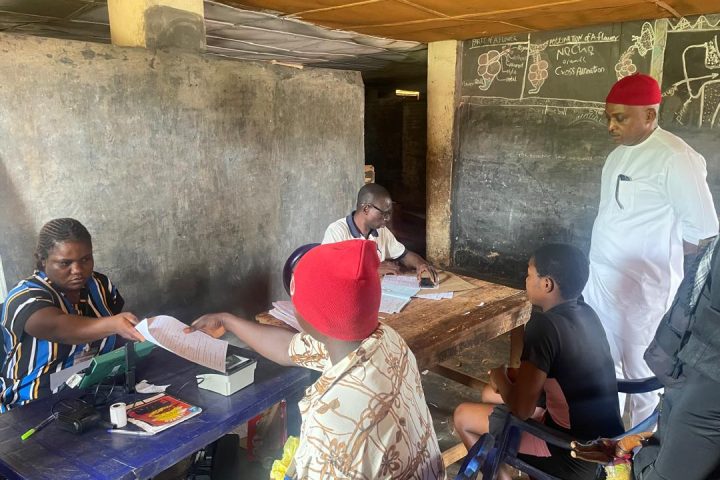
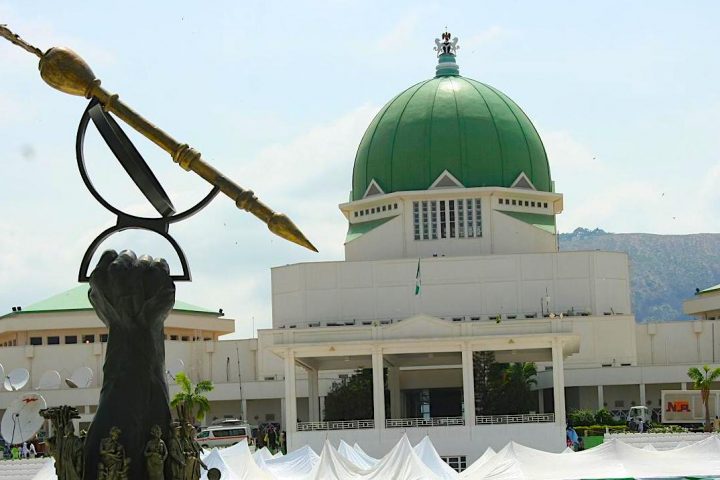

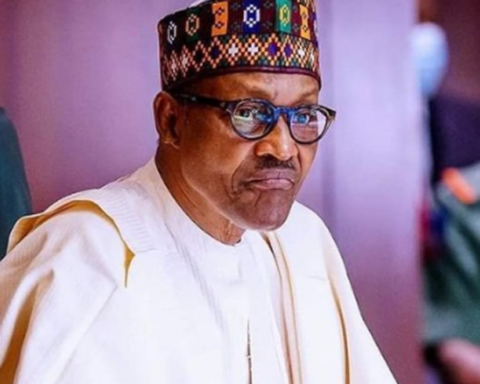







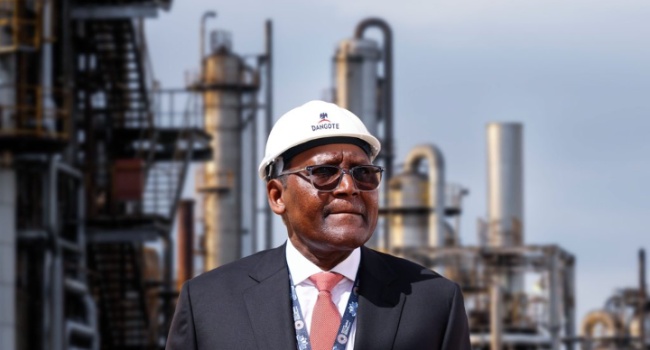
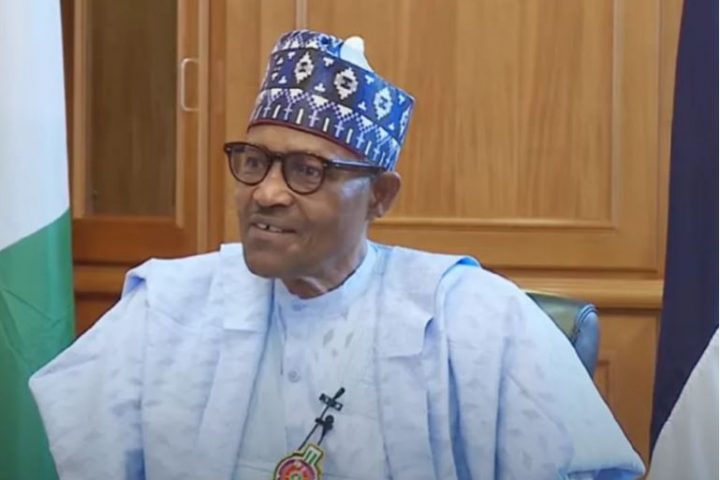
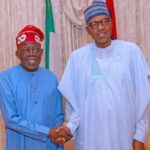
Follow Us